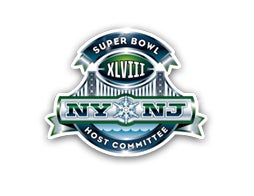Super Bowl culture is changing. It is no longer enough to pay $4 million for a 30-second TV commercial during Super Bowl XLVIII (February 2, 2014). Companies are releasing their ads early, creating online-only campaigns, and even mocking the traditional “Super Bowl ad.”
College of Charleston Communication Professor David Moscowitz explains how advertisers could be sabotaging the Super Bowl.
1. Changing the Super Bowl experience.
Every year, more and more companies are putting their ads online prior to the event. Moscowitz says it is because there is now an intense added pressure for an ad to go viral once a company has spent so much money creating it.
“For many viewers, the experience isn’t focused on watching the game, but seeing the ads. This is also a reason why ads feature more and more celebrities—they are trying to capture more attention in a time when viewers are more culturally segmented from each other.”
2. Taking away the anticipation.
More than half of the people reading this article probably only watch the Super Bowl for the ads (according to Neilsen). Would you still watch it if you’ve seen all the ads online before the actual event?
“That might cause concern for the NFL,” Moscowitz says. “If viewership drops, it could affect the Super Bowl’s role as a cultural touchstone.”
[Related: New Yorker: Super Bowl Ads Without the Super Bowl.]
3. Moving audiences from TV to YouTube.
Companies like Hyundai, Toyota, Bud Light, and Axe are buying online ads to drive traffic to their Super Bowl ad. People will naturally go to YouTube to look for the ads, rather than watching the game in hopes of seeing them.
“I don’t necessarily think it’s a bad thing to have the ads online, as long as the company is being smart about the online versions,” Moscowitz explains. “For instance, I would probably make two versions of the same ad, a 30- and a 60-second spot, and I’d pay for the 30-second spot to air during the game but publish the 60-second spot for free online, thus basically getting an $8 million value for $4 million.”
[Related: AdAge Super Bowl ad coverage.]
4. Not buying ads.
The National Football League largely depends on ad revenue to fund the game and halftime show. If advertisers stop buying ads, that could impact the quality of the production.
Newcastle announced they couldn’t afford an ad, so they created a mega huge website they could afford. The “Super Bowl-campaign-without-a-Super Bowl-ad” has been featured in hundreds of national media outlets and the satirical videos have been viewed millions of times. Moscowitz says, “if a company can get incredible press and impressions at a fraction of the price, why wouldn’t they?”
[Related: Read Business Insider’s article on Newcastle’s campaign.]
David Moscowitz can be reached at [email protected] or 843.953.8128.




